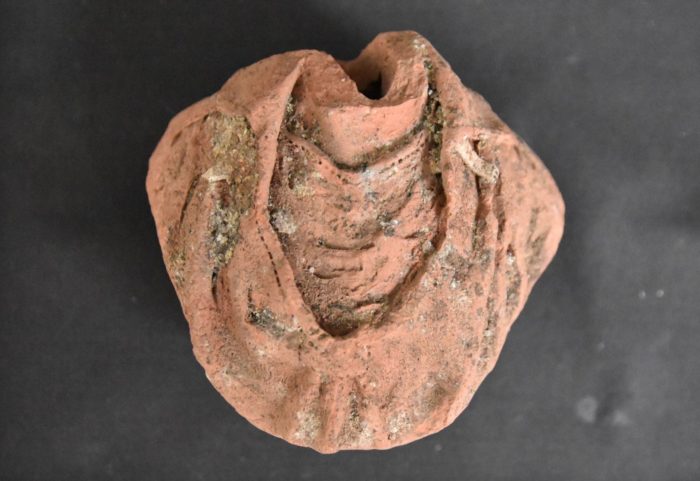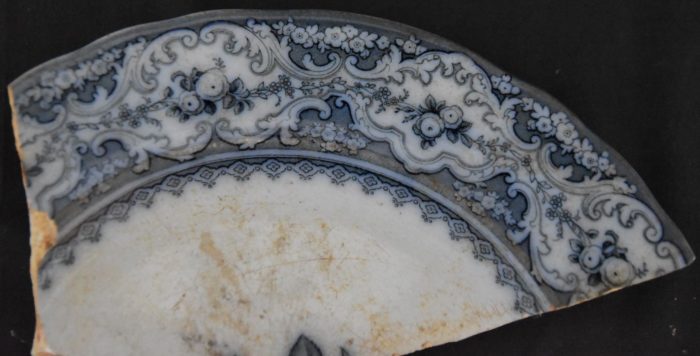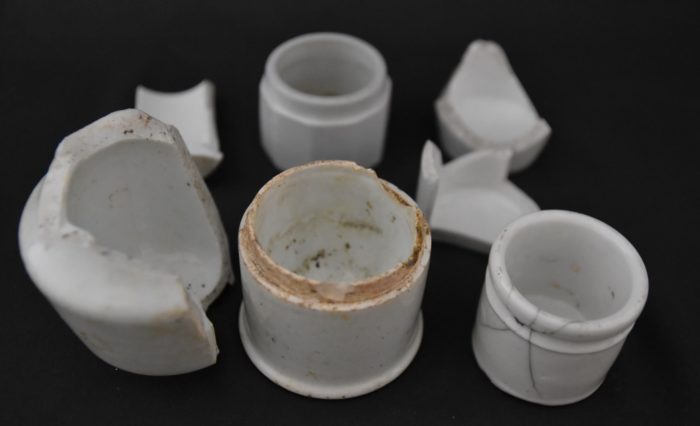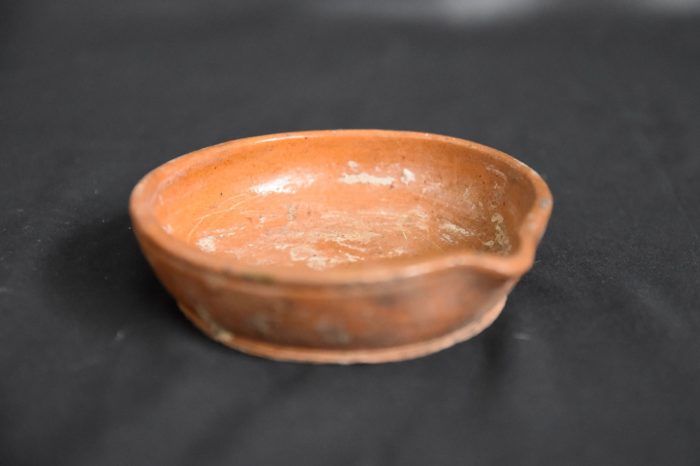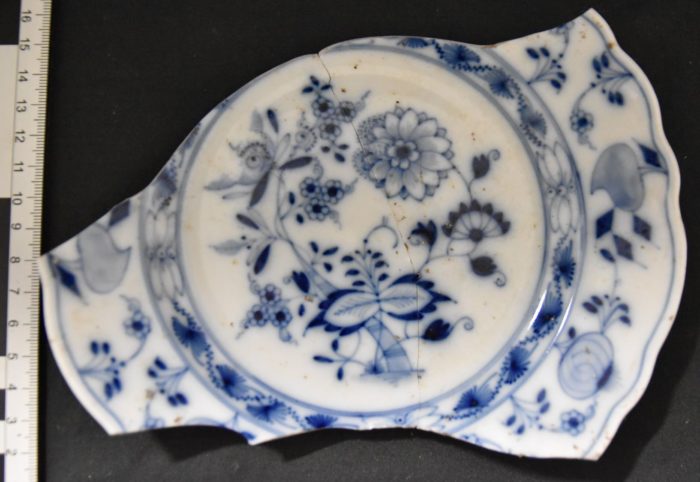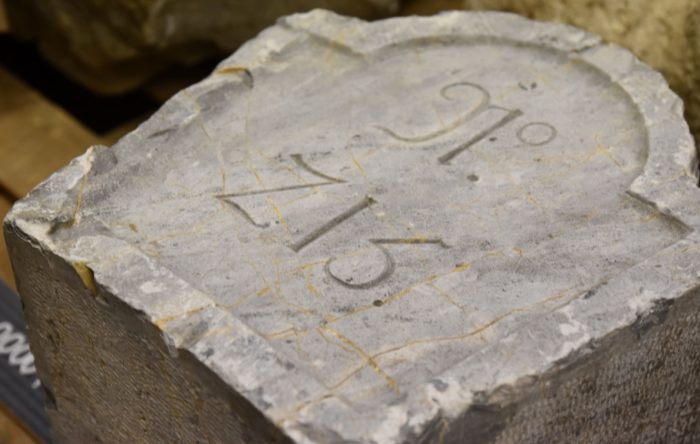Urban Archaeology Graz
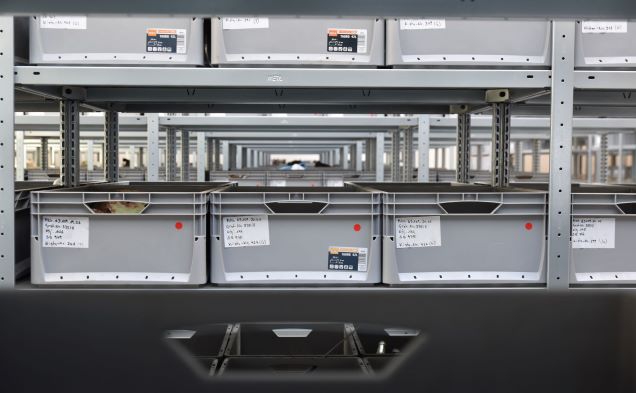
A shhort story of Urabn Archaeology Graz
Urban Archaeology Graz, the newest part of the Collections of the Graz Museum, was established in 2021 on the basis of a municipal council resolution. The decisive factor for this was the large number of contemporary historical finds that had come to light during archaeological excavations carried out since 2017 in the former forced labour camp Liebenau and the former premises of the Reininghaus brewery and the resulting question of how to deal with such a large number of mass finds. Most of these came from municipal properties, with only a small proportion coming from plots owned by private property developers. The newly created Urban Archaeology Graz was commissioned to secure the finds, which will be stored in depot premises in Styriastraße 23 until a central depot is set up for all the Graz Museum’s Collections.
The task of the Urban Archaeology department is to take care of archaeological finds from municipal properties and other historically significant finds in the Graz city area.
Moreover, it serves as a contact point for questions about archaeology in Graz and as a contact address for reports of finds from the city area.
Sesearch Foci
Former Camp Liebenau: The camp complex, known as Camp V, was built at the turn of 1940/41 to accommodate ethnic Germans resettled from abroad. The camp was designed for around 5,000 people, but as a result of material and space constraints due to the intensified aerial warfare, the camp topography, the usage of individual structures and their functions changed. With the conversion of industry to the production of items essential to the war effort, forced labourers* and prisoners of war were increasingly needed to replace the men who had been sent to the front. In 1945, just before the end of the war, the Camp Liebenau was a stopover on the death marches of Hungarian Jews. The whereabouts of many of the victims have remained unclear, and the Urban Archaeology department aims to contribute to clarifying this, also by analysing the numerous finds.
Former premises of the Reininghaus brewery:
The brewery was founded by the Reininghaus brothers on the premises of an existing brewery in 1853. The brewery was hugely extended in the following years and was the first steam-powered brewery in Styria. In 1940, the Mühlstraße resettlement camp for Bessarabian Germans was established, which was later used as a camp for foreign workers* and forced labourers*. Beer was produced at Reininghaus under military administration until the end of the war, but around 80% of the plant was used for military purposes. Masses of industrial waste and brewery remains came to light on the site, especially in filled-in bomb craters.
In general, all find contexts from public land are the focus of Urban Archaeology Graz.
Fields of Activity ans Projects
In the course of the archaeological excavations, including those at the former Camp Liebenau and the former premises of the Reininghaus brewery, the Urban Archaeology department was commissioned to store and manage the finds. Most excavations yield a mass of finds (especially contemporary finds), and the first step in dealing with these mass finds was to categorise them all. A catalogue of criteria was drawn up for this purpose. This catalogue of criteria is intended to examine whether the finds have historical and/or scientific significance and/or whether they can be used as exhibits in a museum. In the course of an inventory, the finds are first cleaned and then described according to material, size and category. They are then photographed and stored in accordance with the conservation guidelines of the Federal Monuments Authority Austria. Each find is entered into a database either individually or in a batch.
For the restoration and conservation treatment of finds, a workshop has been set up with special tools and equipment for handling various materials that meet both restoration and conservation standards.
The aim of the Urban Archaeology department with regard to the finds already taken over by the City of Graz and all future finds is to archive them, make them available for exhibitions and research, and act as a central collection point for finds from archaeological sites in Graz.
Planned projects
Another project of Urban Archaeology Graz is the supervision of the city’s existing archaeological cadastre.
Contact point
The Urban Archaeology department at the Graz Museum sees itself as the first contact point for municipal institutions and private individuals with questions about archaeological finds and sites from the city of Graz. For such requests, the email address stadtarchaeologie@stadt.graz.at has been set up.
In accordance with § 8 of the Austrian Monument Protection Act, the Urban Archaeology department is also the contact point for reporting ground monuments and/or accidental finds that originate from the Graz city area.
